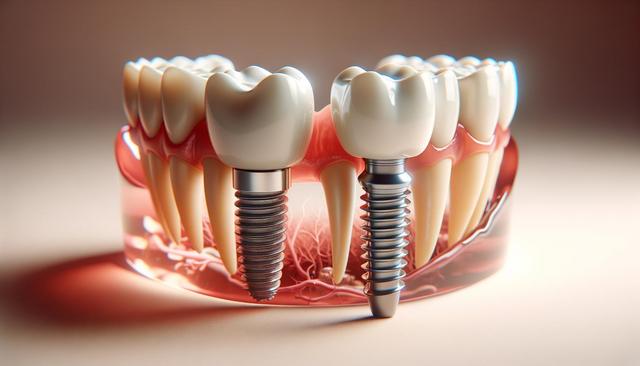Origin and History of the Maltese Breed
The Maltese is a toy breed with a rich and ancient lineage, believed to have originated from the Mediterranean island of Malta. Historical evidence suggests that these dogs were companions to royalty and nobility as far back as 2,000 years ago. Revered for their elegant white coats and gentle demeanor, Maltese dogs were often depicted in artwork and literature. Their small size and graceful appearance made them ideal lap dogs, and they were especially popular among aristocratic women in Europe. Despite their dainty look, Maltese dogs were valued for their alertness and loyalty, traits that continue to define the breed today.
Over the centuries, the Maltese has been bred to emphasize its affectionate nature and charming personality. They were introduced to other parts of Europe and Asia through trade and travel, where they quickly gained popularity. The breed was officially recognized by kennel clubs in the 19th century, and since then, it has continued to be a favorite among dog lovers for both companionship and show purposes.
Physical Characteristics and Grooming Needs
Maltese puppies are easily recognizable due to their silky, pure white coats and compact bodies. Weighing between 4 to 7 pounds when fully grown, they are an ideal size for apartment living. Their expressive dark eyes and black button noses give them an endearing appearance that many find irresistible. While they are small, they carry themselves with a certain elegance and confidence that sets them apart from other toy breeds.
However, the Maltese coat requires regular grooming to maintain its appearance and health. Their long, flowing hair can become tangled if not brushed daily. Regular baths, ear cleaning, and teeth brushing are also essential to keep them looking and feeling their best. Here are a few grooming tips:
- Brush their coat daily with a soft-bristle brush
- Use a tear stain remover to maintain facial cleanliness
- Trim their nails every few weeks
- Schedule professional grooming sessions every 4 to 6 weeks
Proper grooming not only enhances the beauty of the Maltese but also contributes significantly to their overall health and comfort.
Temperament and Personality Traits
Maltese puppies are known for being affectionate, playful, and adaptable. These dogs form strong bonds with their families and thrive on human interaction. Despite their small size, they often exhibit a surprisingly bold and fearless attitude, making them confident and spirited companions. They are also highly intelligent, which makes them responsive to training and eager to learn new tricks.
Due to their social nature, Maltese dogs do not do well when left alone for extended periods. They can develop separation anxiety if not properly trained to manage alone time. However, their friendly disposition makes them great with children and other pets when introduced properly. Some notable personality traits include:
- Highly affectionate and loyal
- Alert and responsive to their environment
- Sociable with both people and animals
- Quick learners with a keen mind
Owners who provide consistent attention and positive reinforcement are likely to enjoy a deep and lasting bond with their Maltese.
Training and Socialization
Training Maltese puppies can be a rewarding experience thanks to their intelligence and eagerness to please. However, like many small breeds, they can be a bit stubborn at times. Early training and socialization are key to raising a well-behaved and confident adult dog. Positive reinforcement methods, such as praise and treat-based rewards, work exceptionally well with this breed.
House training may take some patience, as their small bladders require more frequent trips outside. Crate training is often recommended to help establish routine and structure. Socialization should also begin at an early age. Introducing your Maltese puppy to various people, environments, and other animals will help reduce anxiety and potential behavioral issues later on. Important training tips include:
- Start with basic obedience commands like sit, stay, and come
- Use short, fun training sessions to keep them engaged
- Reward good behavior consistently
- Expose them to different sights and sounds to build confidence
With the right approach, Maltese puppies can grow into well-mannered and sociable companions.
Health Considerations and Lifespan
Maltese dogs are generally healthy and can enjoy a long lifespan of 12 to 15 years, especially when provided with appropriate care and regular veterinary visits. Like all breeds, they are prone to certain health issues, some of which are hereditary. Common conditions include dental problems, luxating patella (knee joint issues), and respiratory concerns due to their small size.
Preventative care plays a significant role in maintaining your Maltese puppy’s health. Regular checkups, vaccinations, and a balanced diet are important. Due to their predisposition to dental issues, owners should pay close attention to oral hygiene. Other health maintenance tips include:
- Feed a high-quality diet suited for small breeds
- Ensure regular physical activity without overexertion
- Keep up with parasite prevention and vaccinations
- Watch for signs of allergies or skin conditions
By staying proactive and attentive to their needs, owners can help ensure their Maltese leads a happy, healthy life.
Conclusion: Is a Maltese Puppy Right for You?
For individuals or families seeking a devoted and affectionate companion, the Maltese puppy offers a delightful blend of charm, intelligence, and beauty. Their manageable size and loving nature make them well-suited to a variety of living environments, including apartments and smaller homes. However, owning a Maltese also comes with responsibilities—grooming, training, and regular health care are essential for their well-being.
If you’re ready to invest time and attention into a rewarding relationship, a Maltese puppy can be a loyal and joyful addition to your life. Their gentle disposition and spirited character ensure they’re not just pets, but cherished members of the family.




Leave a Reply